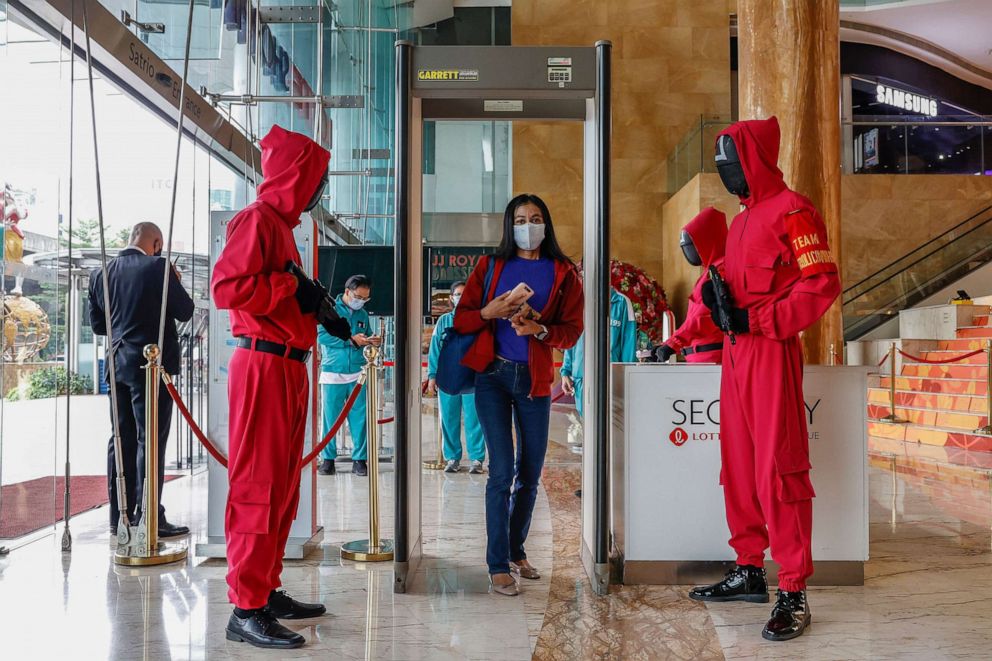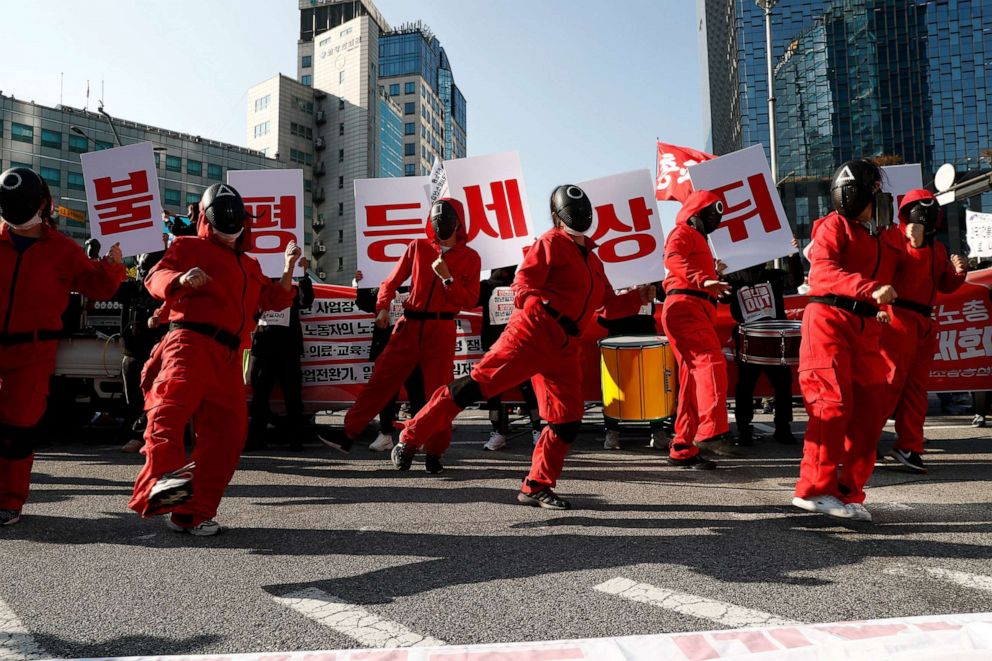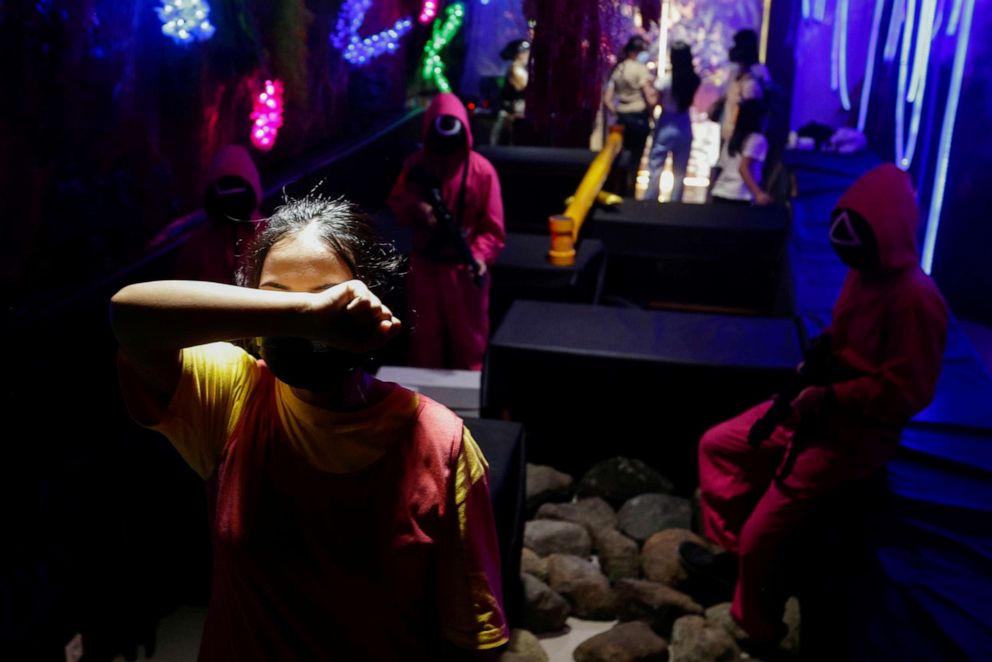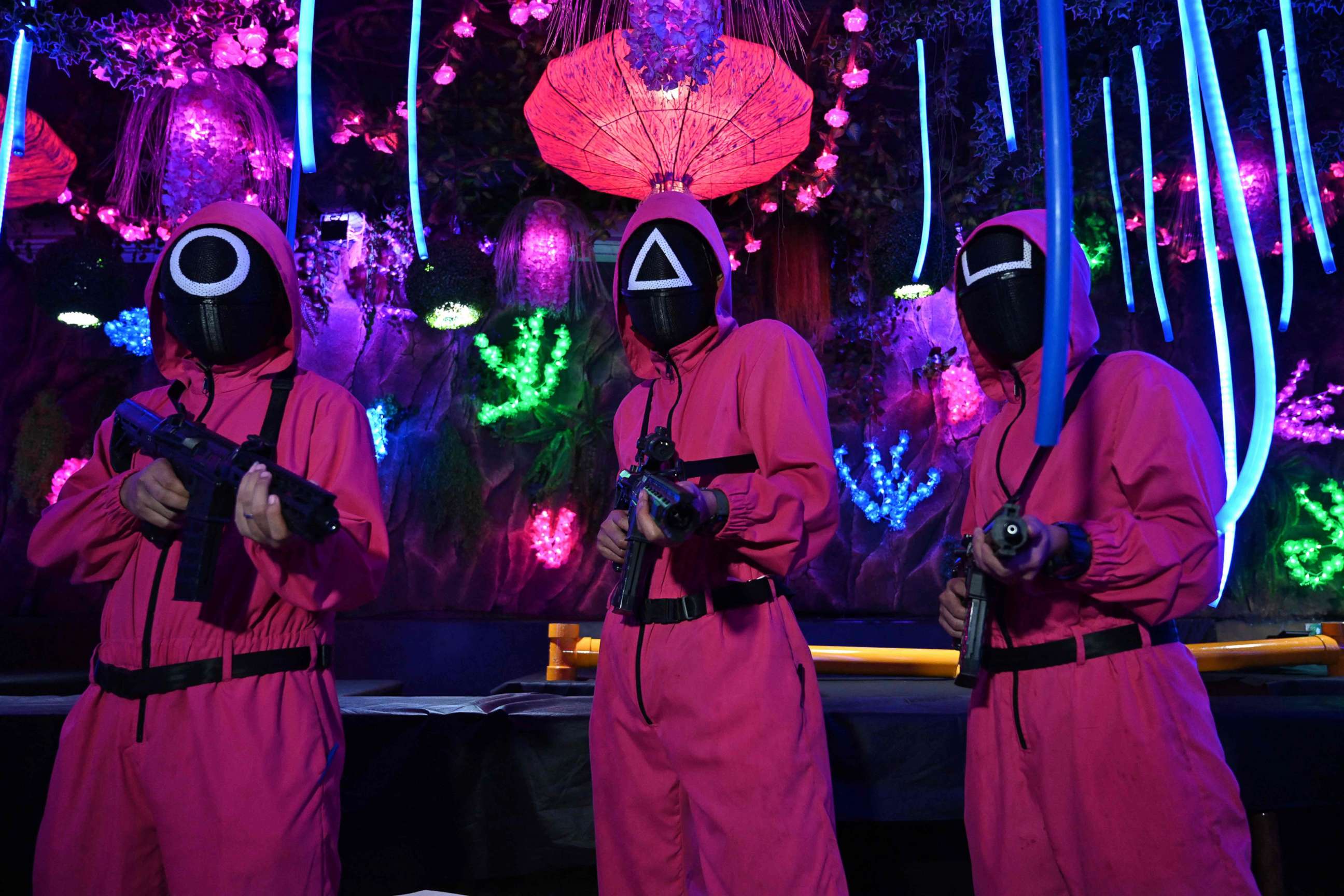Netflix's 'Squid Game' fandom highlights need for self-preservation amid trauma
It's the streaming service's most popular show of all time.
This story includes spoilers for the show.
Netflix's "Squid Game" has taken the world by storm, and now real-life versions of the competition are being held in cities across the globe -- without the death and destruction, of course.
The Korean Cultural Center in the United Arab Emirates organized a "Squid Game"-themed event where participants could play the children's games seen in the hit show -- like Red Light, Green Light.
In New York City, the Korea Tourism Organization is also planning a version of its own. However, instead of awarding a 45.6 billion won ($38.5 million) top prize, it'll be gift cards, Apple products or a trip to Korea.

Memes and "Squid Game"-inspired TikToks also have spread like wildfire across the internet. Some psychologists and sociologists have said that audiences sometimes make light of potentially serious topics as a method of self-protection.
"We deal with our existential fears by making jokes or by creating psychological distance," said Dr. Pamela Rutledge, a media psychologist. "Humor is often a means of alleviating emotional discomfort and existential threat."
"Squid Game" highlights income and wealth inequality in not only South Korea, where the show is based, but around the world. People who are deeply -- almost irreversibly -- in debt or impoverished enter a competition that, if won, should fix their financial problems. When they arrive, they quickly discover that they've unwittingly agreed to compete to the death for the money. Appalled, they vote to quit the game and leave, only to return.

Later in the show, it's revealed that a group of wealthy elite are responsible for staging the event, highlighting how little the players are seemingly valued as people.
This issue of socioeconomic inequality isn't fictional. In reality, about 82% of the money generated in 2018 went to the richest 1% of the global population, according to a report by the charity group Oxfam. And according to the United Nations, about 700 million people are living in extreme poverty, on less than $1.90 a day.
The show has clearly resonated with viewers: "Squid Game" is Netflix's biggest show ever, in any language, according to the streaming giant.
"Rich people easily get richer, basking in all kinds of privileges, and the poor get poorer and poorer," said Sung-Ae Lee, a film analyst and Asian studies lecturer at Macquarie University. "The series is so popular because it depicts how there's no other way for poor people to get out of the poverty or debt. ... Just working very hard and doing the normal thing -- it'd be impossible."
Lee said several of the show's characters -- like North Korean migrant Kang Sae-byeok and Pakistani migrant Abdul Ali -- show how universal class struggle can be and how hard it is to escape the cycle of poverty, even in new countries that promise more opportunity.
"In fleeing to the south, [Kang Sae-byeok] has encountered or entered another dystopia," said Lee, adding that the show probably hits very close to home for many viewers. For them, a fandom springing up around the show is something in which they can take comfort.

The show also debuted at a moment of global trauma, Rutledge added, as the COVID-19 pandemic appears to have only exacerbated racial, social and economic inequality.
Rutledge said the collective grief from this past year may be causing people to "laugh in the face of the devil," or deny fear and anxiety about these issues in the name of self-preservation.

"The elements that have created the ['Squid Game'] dystopia are present in our world," Rutledge continued. "Many people have a fundamental fear of death. Mortality is a scary thing. And it's especially scary after a period where in the States, where we lost 600,000 people."
And children's games, played in a visually stimulating, colorful environment, also provide a sense of comfort and nostalgia.
"It's a way of processing some of that emotion and connecting back with our humanity," Rutledge added. "Oddly enough, dystopias tend to give us hope, because it's sort of like a lesson in how to survive the worst possible outcome."




